Vitamin B9 : Vitamin B9 is a water-soluble vitamin that is essential for your body.…
Top 10 Indian Foods Rich In Vitamin B2
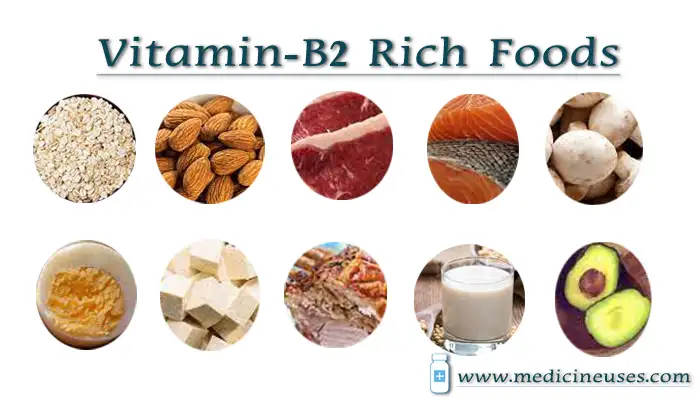
Vitamin B2 :
Vitamin B2 is one of the vitamins that is a water-soluble vitamin that is involved in the metabolism of carbohydrates, fats, and proteins. Vitamin B2 is known as riboflavin. It’s an important nutrient because it helps your body turn food into energy. It also helps keep your skin healthy and your eyes working properly. You can also use it as a vitamin supplement to maintain the health of your skin, hair, and nails. People take Vitamin B2 for its benefits to the nervous and blood systems. This vitamin is one of eight B-complex vitamins and can help protect against cataracts and age-related macular degeneration.
- Riboflavin is a water-soluble B vitamin that is well regulated by the body
- Vitamin B2 is one that cannot be stored by the body except in insignificant amounts, It must be replenished daily
- Vitamin B2 helps break down carbohydrates, fats and protein for use by the body
- Its role in maintaining an energy supply for the body is crucial, for it helps convert carbohydrates into adenosine triphosphate (ATP), a compound needed to store energy in muscles and is necessary for normal cell growth and function
- This vitamin is an essential component of two major coenzymes, flavin mononucleotide (FMN; also known as riboflavin-5’-phosphate) and flavin adenine dinucleotide (FAD)
- These coenzymes play major roles in energy production, cellular function, growth, and development; and metabolism of fats, drugs, and steroids
- Riboflavin is required for mitochondrial function
- It helps to prevent or treat migraine headaches
- Helps in the production of red blood cells and antibodies
- Riboflavin helps maintain normal levels of homocysteine, an amino acid in the blood
- Bacteria in the large intestine produce free riboflavin that can be absorbed by the large intestine in amounts that depend on the diet
- More riboflavin is produced after ingestion of vegetable-based than meat-based foods
- A deficiency of riboflavin can lead to cracking and reddening of the lips, inflammation of the mouth, mouth ulcers, sore throat, skin rash, anemia, itchy red eyes and cataracts in severe cases
- The current daily value for riboflavin (Vitamin B2) is 1.3mg
Ten Important Indian Foods Which is Rich in Vitamin B2
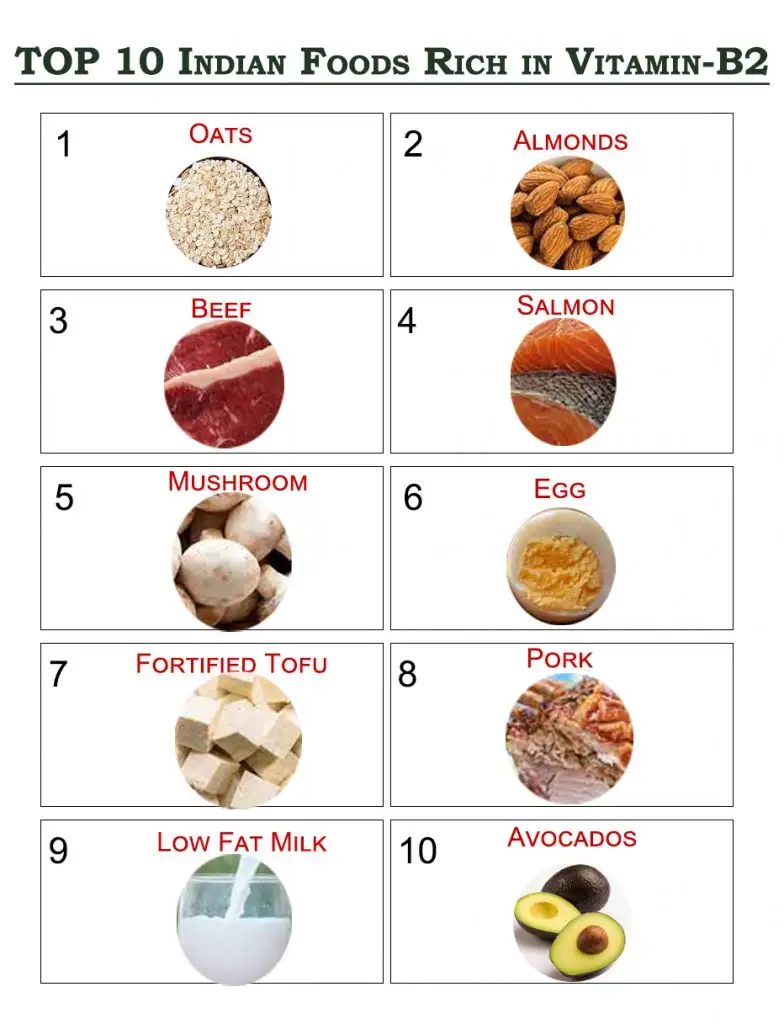
| 1 Oats | 2 Almonds |
| 3 Beef | 4 Salmon |
| 5 Mushroom | 6 Egg |
| 7 Fortified Tofu | 8 Pork |
| 9 Low Fat Milk | 10 Avocados |
1. Oats :
- Oats – gluten-free healthiest whole grain and a great source of important vitamins, minerals, soluble fiber and antioxidants
- It helps reduce cholesterol (reduced risk of heart disease) and blood sugar levels, promotes healthy gut bacteria and increases feelings of fullness (weight loss)
- Colloidal oatmeal (finely ground oats) has long been used to help treat dry and itchy skin. It may help relieve symptoms of various skin conditions, including eczema
- May help prevent asthma in children when fed to young infants
- At bran can help reduce constipation in elderly individuals, significantly reducing the need to use laxatives
- They also contain more protein and fat than most grains
- 1.1 mg per 100 gms
2. Almonds :
- Almonds are a vital source of antioxidants, much of which is concentrated in their brown layer of skin
- Oxidative stress is an imbalance between the production of cell-damaging free radicals
- Almonds have been found to act as prebiotics, which serve as food for the beneficial bacteria in the gut linked to immunity, anti-inflammation, and mental health
- Helps in gut health
- Maintain or increase good heart protective HDL cholesterol, while lowering bad LDL levels
- Almonds and other nuts also help reduce blood pressure and improve vascular function
- The combo of healthy fat, plant protein, and fiber in almonds boosts feelings of fullness and aids in weight reduction
- Good fat support skin health
- 1.1mg per 100 grams
3. Beef :
- Beef is naturally rich in protein, which helps muscle growth and supports muscle mass
- Beef provides iron and four essential vitamins – niacin, riboflavin, vitamins B6 and B12 – which help reduce tiredness and fatigue
Beef provides good health and well-being
Beef is a rich source of zinc, which supports normal hair, nails and skin. Zinc also supports normal cognitive function, fertility and reproduction and also contributes to the maintenance of normal testosterone levels in the blood - Beef is a source of iron which helps the immune system to work
- Beef 0.9mg per 100 grams
4. Salmon :
- Salmon contains nearly the whole spectrum of B vitamins, which contribute to maintaining energy levels, preventing inflammation, protecting the heart, and bolstering brain function
- Salmon gets antioxidant called astaxanthin from their diet. It helps decrease bad cholesterol and increase the good
- Oily fish contains EPA and DHA omega-3 fatty acids to help prevent inflammation in the nervous system and brain
- Essential for healing, growth, and maintaining muscle mass and metabolism
- Salmon is a lean source of protein that helps keep you full for longer
- The antioxidant is good for skin and healthy hair
- It can help combat the signs of UV damage and prevent water loss
- Potassium present helps negate the effects of too much sodium and flushes out extra water. This helps control blood pressure, too
- Selenium in salmon helps support thyroid function and bone health
- 0.5mg per 100 grams
5. Mushroom :
- Mushrooms contain a super-high concentration of two antioxidants to protect the body from the physiological stress that causes visible signs of aging
- Mushrooms are rich in B vitamins : riboflavin, folate, thiamine, pantothenic acid, and niacin
- These help the body utilize energy from the food we consume and produce red blood cells, which carry oxygen throughout the body
- Help prevent Parkinson’s and Alzheimer’s. They recommend eating at least five button mushrooms per day to reduce your risk of neurological illness in the future
- Mushrooms helps boost your memory and heart health
- Mushrooms can assist in strengthening your bones
- 0.5mg per 100 grams
6. Egg :
- Eggs are nutrient rich, protein in an egg can be found in the egg white, while the yolk contains healthy fats, vitamins, minerals and antioxidants
- Proteins are the building blocks of life and a single egg contains about 6.3 grams of high-quality protein. The main functions of proteins in the body are to build, strengthen and repair or replace things, such as tissue
- Eggs provide us with very high-quality protein that contains all nine essential amino acids in the right amounts needed by the body for optimum growth and maintenance
- Eggs help increase levels of HDL help reduce the risk of heart disease
- Omega-3 in eggs help in heart, brain health and in protecting our eyes
- Eggs are one of the healthiest foods you can eat for weight management
- Eating eggs can also help reduce variations in glucose and insulin levels
- Choline is essential for normal cell functioning and is particularly important during pregnancy to support healthy brain development in the baby
- Eggs are rich in the antioxidants lutein and zeaxanthin, both of which are believed to play a protective role in reducing the risk of certain eye diseases, including cataracts and macular degeneration
- Vitamin A and omega-3 fatty acids in eggs may also protect eyes from retina damage
- Eggs are also a low-carbohydrate food with a very low glycemic index score helps with diabetes
- 0.5mg per 100 grams
7. Fortified Tofu :
- Tofu is an important low calorie source of protein for vegetarians
- Soy isoflavines have been found to help reduce levels of LDL (bad cholesterol)
- It can enhance the skin and hair, boost energy, and help maintain a healthy weight
- It has antioxidant properties that may inhibit the growth of cancer cells
- Protein, and particularly soy protein, may enhance renal function, and it could have benefits for people who are undergoing dialysis or kidney transplantation
- Soy isoflavones may help reduce bone loss and increase bone mineral density, especially after menopause
- Help prevent liver damage caused by free radicals
- Soy isoflavones performance in nonverbal memory, verbal fluency and other functions
- Soybeans are also high in healthy polyunsaturated fats, especially omega-3 alpha-linolenic acid
- 0.4mg per 100 grams
8. Pork :
- Pork has high protein content, essential for people looking to increase their muscle mass
- Pork certainly contains fat, but it does not have as much as red meat, making it a good way to get the fat in your diet that you need without overdoing it
- Pork packs a whole host of vitamins, and it is particularly rich in B vitamins
- B vitamins are recognized for the benefits they offer the brain and may help ward off issues like depression and anxiety
- B vitamins are one of the key concerns for many vegetarians since meat is such an important source, prompting them to take supplements
- Minerals in it help promote the growth of new cells in the body, boost the immune system, strengthen teeth and bones, and also help protect the walls of blood vessels
- With its high protein content, eating pork will keep you feeling full longer and may help you avoid unhealthy snacks
- 0.3mg per 100 grams
9. Low Fat Milk :
- Reduced-fat milk and skim milk have fewer calories and higher amounts of vitamins
- Skim milk actually has more calcium than whole milk because calcium is found in milk solids, not milk fat
- Milk is also fortified with vitamin D, making it one of the only dietary sources of this nutrient, which is emerging as an anti-cancer vitamin
- Dairy products are excellent sources of potassium and magnesium, which naturally reduce blood pressure
- A daily glass of milk can also reduce the risk of colorectal cancer by 15 percent
- Helps prevent osteoporosis and bone fractures and even help you maintain a healthy weight
- 0.2mg per 100 grams
10. Avocados :
- Avocados do not contain any cholesterol or sodium and are low in saturated fat
- Avocados are very high in potassium, which should support healthy blood pressure levels
- Avocados rich in fiber benefits for weight loss and metabolic health
- Eating avocado can improve heart disease
- Avocados had a much higher nutrient intake and a lower risk of metabolic syndrome
- Their fat content helps in absorb nutrients from plant foods
Avocados are high in antioxidants, very important for eye health and lower your risk of macular degeneration and cataracts - May help prevent cancer
- Avocado help relieve symptoms of arthritis
- High in fiber and low in carbs, which may promote weight loss
- 0.1mg per 100 grams
Vitamin B2 Deficiency Symptoms and Signs
Vitamin B2 deficiency can be caused by a lack of vitamin B2 in your diet. Symptoms include fatigue, weakness, weight loss, sore tongue, mouth ulcers, and cracking at the corners of your mouth. Signs include red or purple spots on your skin around hair follicles, skin lesions, high levels of leukocytes in your blood, and low levels of white blood cells.
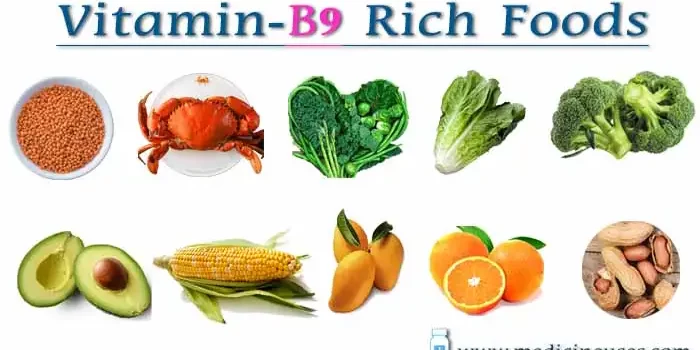
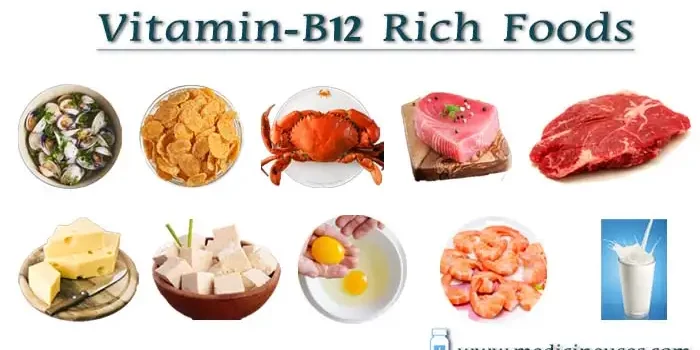
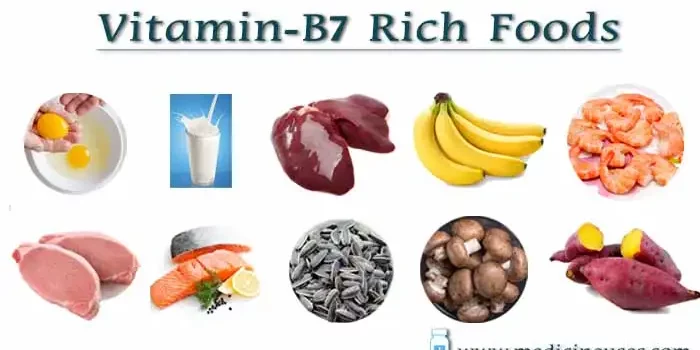
This Post Has 0 Comments